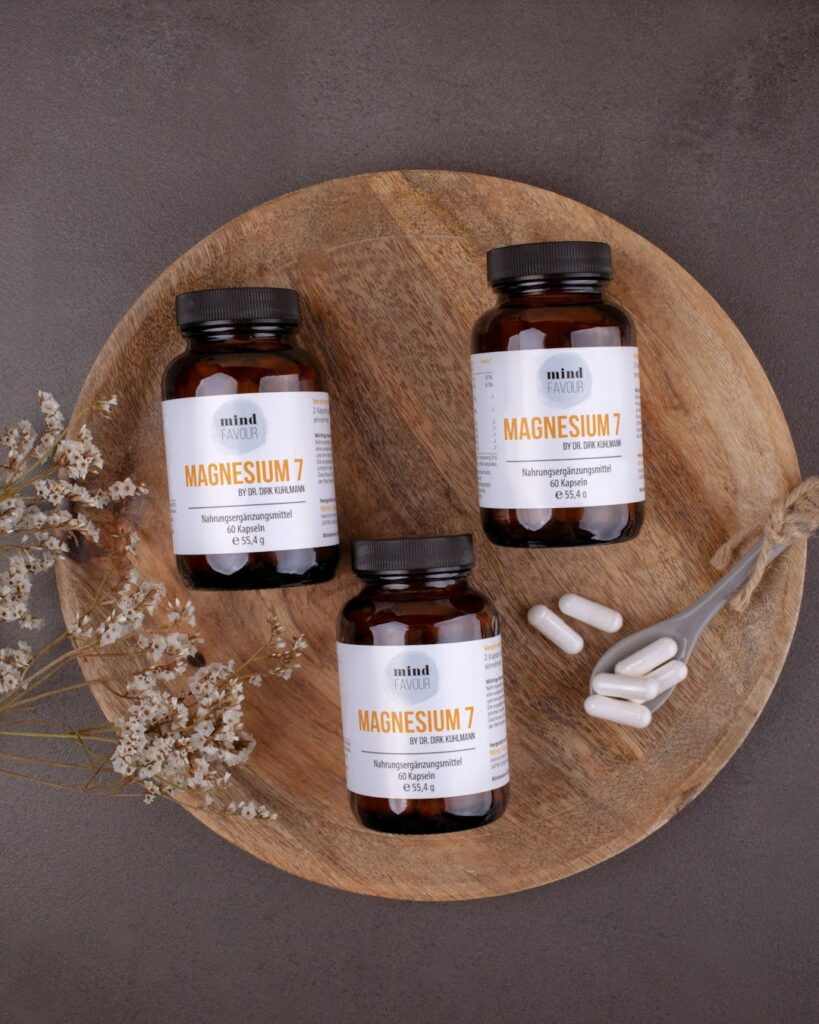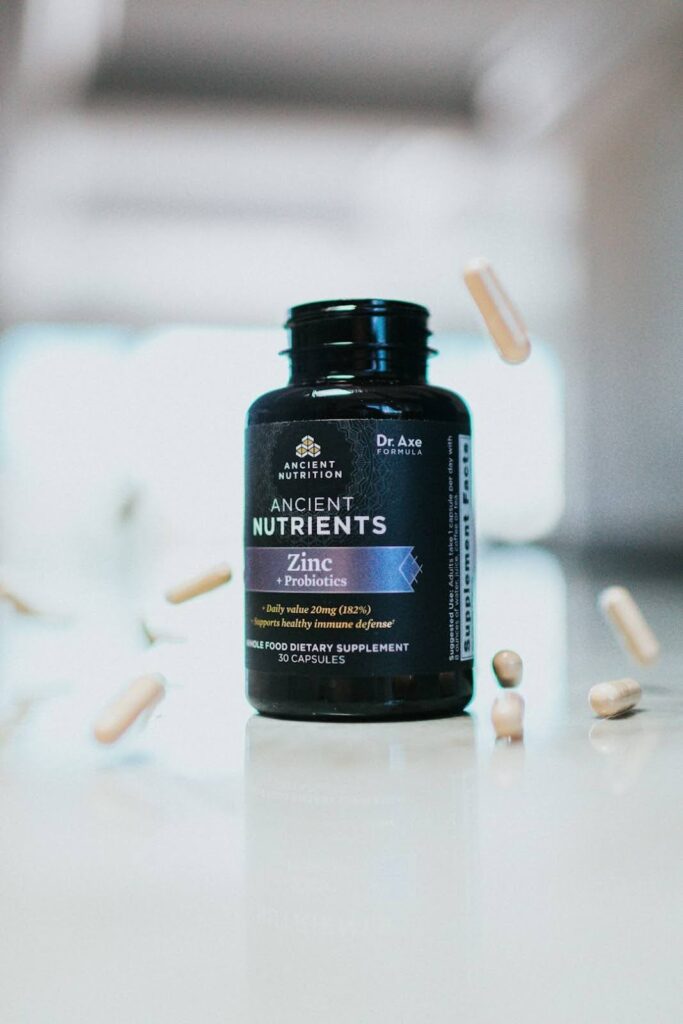Registered dietitian, functional nutritionist, & your new fertility BFF. I'm passionate about helping women thrive during preconception, pregnancy, and postpartum.
Nutrition
PCOS
Fertility
View All
Explore the blog
Hi, I'm Anabelle
Non-toxic Living
Work with our team
Top 5 Supplements to Effectively Manage PCOS Symptoms
Understanding PCOS: An Overview
Polycystic Ovary Syndrome (PCOS) is a multifaceted endocrine disorder that impacts a significant percentage of women during their reproductive years. Estimates suggest that PCOS affects between 4% to 18% of women worldwide, making it one of the most common hormonal disorders among women.
Characterized by a combination of symptoms, PCOS can vary widely from one individual to another. Common symptoms include irregular menstrual cycles, excessive hair growth (hirsutism), acne, and weight gain. Additionally, women with PCOS often face challenges related to insulin resistance, which can increase the risk of developing type 2 diabetes.
The exact cause of PCOS remains unclear. However, it is believed to be related to a combination of genetic and environmental factors. Hormonal imbalances, particularly an excess of androgens (male hormones that females also have), play a critical role in the development of PCOS symptoms.
Early diagnosis and management are key to mitigating the long-term health risks associated with PCOS. Common diagnostic tools include ultrasound imaging of the ovaries and blood tests to measure hormone levels. Despite its complexities, various lifestyle changes, such as diet and exercise, along with medical treatments, can help manage the condition effectively.
Understanding the intricacies of PCOS not only empowers you with knowledge but also offers a pathway to improving your overall health and well-being. With the right approach, you can manage the symptoms and live a fulfilling life.
Why Supplements Matter in Managing PCOS
Polycystic Ovary Syndrome (PCOS) is a complex endocrine disorder affecting millions of women worldwide. Symptoms such as irregular menstrual cycles, weight gain, acne, and excessive hair growth can significantly impact your quality of life. Supplements can play a crucial role in managing these symptoms effectively.
Addressing Nutrient Deficiencies: Many women with PCOS are found to be deficient in essential vitamins and minerals like Vitamin D, Magnesium, and Zinc. These deficiencies can exacerbate symptoms, making it more challenging to manage the condition. By supplementing these nutrients, you can help restore balance and support your overall health.
Hormonal Regulation: PCOS often leads to hormonal imbalances, particularly with insulin and androgens. Supplements such as Inositol and Omega-3 Fatty Acids have been shown to aid in regulating these hormones, thereby reducing symptoms like acne and excessive hair growth. Inositol, for instance, has been found to improve insulin sensitivity, which is crucial for managing PCOS.
Reducing Inflammation: Chronic inflammation is a common issue in women with PCOS, contributing to insulin resistance and other metabolic problems. Omega-3 Fatty Acids are well-known for their anti-inflammatory properties and can help reduce systemic inflammation, improving your overall metabolic health.
Improving Mental Well-being: Living with PCOS can take a toll on your mental health, leading to stress and anxiety. Supplements like Magnesium not only help with physical symptoms but also support mental well-being by promoting relaxation and better sleep. Improved sleep and reduced stress can significantly impact how you manage your PCOS symptoms day-to-day.
Ultimately, while supplements are not a cure-all for PCOS, they can be a valuable part of a comprehensive management strategy. Always consult with a healthcare professional to create a tailored supplement plan that addresses your specific needs and conditions. Taking the right supplements can help you take control of your health and mitigate the challenges posed by PCOS.
Vitamin D: The Sunshine Vitamin for Hormonal Balance
Vitamin D, often referred to as the sunshine vitamin, plays a crucial role in maintaining hormonal balance, especially for those grappling with PCOS. Many individuals with PCOS are found to have a deficiency in Vitamin D, which can compound the condition’s already complex symptoms. But what exactly makes this vitamin so vital?
Firstly, Vitamin D acts like a hormone itself, impacting the function of over 200 genes, including those involved in the regulation of the menstrual cycle and reproduction. Research has shown that adequate levels of Vitamin D can help improve insulin sensitivity, which is often a significant concern for individuals with PCOS. In essence, better insulin sensitivity can lead to more balanced blood sugar levels and reduced symptoms.
Moreover, Vitamin D also supports healthy pregnancies. Ensuring optimal levels can make a big difference for women with PCOS trying to conceive, as it helps in the regulation of menstrual cycles and the maintenance of healthy hormone levels.
So, whether you’re soaking up the sun or considering a supplement like HUM’s Here Comes the Sun Vitamin D3, incorporating this vitamin into your routine can profoundly impact your journey towards hormonal balance and overall well-being.
Inositol: A Natural Approach to Hormone Regulation
Inositol, often referred to as Vitamin B-8, plays a crucial role in managing PCOS symptoms by naturally regulating hormone levels. There are two main forms that are particularly effective for women with PCOS: Myoinositol and D-chiro-inositol.
Both forms have been shown to improve insulin-receptor activity, which can be beneficial in reducing insulin resistance—a common issue for those with PCOS. Enhanced insulin sensitivity helps to stabilize blood sugar levels and may mitigate some of the hormonal imbalances that characterize this condition.
Additionally, a combination of inositol derivatives and alpha-lipoic acid (ALA) has been demonstrated to further improve insulin sensitivity, support ovulatory function, and reduce hyperandrogenism. Hyperandrogenism, signified by elevated levels of male hormones, often leads to symptoms like hirsutism (excessive hair growth) and acne. By addressing these symptoms, inositol can contribute significantly to a better quality of life for women suffering from PCOS.
If you’re considering inositol as a supplement, it’s important to note its potential benefits aren’t limited to insulin regulation. Research suggests that inositol can help balance several other hormones related to reproductive health, offering a holistic approach to managing PCOS symptoms. This makes inositol a versatile and promising option worth discussing with your healthcare provider.
Omega-3 Fatty Acids: Reducing Inflammation and Insulin Resistance
Omega-3 fatty acids, typically found in fish oil, play a pivotal role in managing PCOS symptoms. One of their standout benefits is their ability to reduce inflammation, which is often at the crux of many PCOS-related issues. By lowering inflammation, omega-3s help to mitigate the systemic stress that can exacerbate hormonal imbalances.
But the benefits don’t stop there. Omega-3s are also known for their positive effect on insulin resistance—a common concern for those with PCOS. Insulin resistance occurs when cells in your muscles, fat, and liver don’t respond well to insulin and can’t easily take up glucose from your blood. By improving insulin sensitivity, omega-3s aid in maintaining more stable blood sugar levels, which is crucial for managing PCOS effectively.


Research suggests that regularly incorporating omega-3s can help balance lipid levels, improving overall metabolic health. This can be particularly beneficial for those with PCOS, who often face challenges related to weight management and cardiovascular health. The anti-inflammatory properties of omega-3s make them a valuable addition to your supplement regimen, especially when you are aiming to tackle the multi-faceted challenges of PCOS.
For the best results, consider adding sources of omega-3s such as fatty fish (like salmon, mackerel, and sardines) to your diet, or opt for high-quality fish oil supplements. Aim for a balanced intake to harness the full spectrum of benefits that omega-3s offer. Always consult your healthcare provider before starting any new supplement to ensure it’s right for you.
Magnesium: Combatting Stress and Improving Sleep
Magnesium plays a pivotal role in managing PCOS by aiding in stress reduction and enhancing sleep quality. This mineral is known for its natural calming effect, which can help mitigate the elevated stress levels often experienced by those with PCOS. Elevated stress can exacerbate PCOS symptoms, making magnesium supplementation particularly beneficial.
Moreover, magnesium supports proper blood sugar regulation, a critical factor for managing PCOS. This nutrient’s ability to enhance insulin sensitivity can help maintain stable blood sugar levels, potentially reducing the risk of insulin resistance—a common challenge for many with PCOS.
When it comes to improving sleep, magnesium is a game-changer. It helps regulate neurotransmitters that send signals to the brain and nervous system, creating a more conducive environment for restful sleep. Poor sleep quality can significantly impact hormone levels, worsening PCOS symptoms. By improving sleep, magnesium indirectly supports hormonal balance.

Not all magnesium supplements are created equal. Magnesium Bisglycinate is often recommended for its superior absorption and minimal digestive discomfort compared to other forms. Including this specific form of magnesium in your routine may offer the best results in combating stress, regulating blood sugar, and improving sleep quality.
Incorporating magnesium-rich foods into your diet, such as leafy greens, nuts, seeds, and whole grains, can further bolster your magnesium intake. Nevertheless, a supplement can ensure you consistently meet your daily needs, providing a robust foundation for managing PCOS symptoms effectively.
Zinc: Supporting Reproductive Health
Zinc is an essential trace mineral that plays a pivotal role in many bodily functions, including immune response, DNA synthesis, and cell division. When it comes to managing PCOS, zinc shines particularly in supporting reproductive health.
Studies have demonstrated that zinc supplementation can improve fertility and enhance reproductive function. This is particularly crucial for those with PCOS, as hormonal imbalances often lead to irregular menstrual cycles and ovulation issues. By helping to regulate the hormonal environment, zinc can promote regular ovulation and menstrual regularity, increasing the chances of conception.
In addition, zinc’s antioxidant properties help combat oxidative stress, which is often elevated in individuals with PCOS. Oxidative stress can cause cellular damage and inflammation, further complicating PCOS symptoms. By reducing oxidative stress, zinc contributes to a healthier reproductive system and overall well-being.

Considering the different forms of zinc supplements available, such as zinc sulfate and zinc picolinate, it’s important to choose a form that offers high bioavailability. Zinc picolinate is often recommended because it’s easily absorbed by the body, ensuring you get the maximum benefits.
Before starting any new supplement regimen, it’s wise to consult with a healthcare provider to determine the appropriate dosage and to ensure it aligns with your individual health needs. Integrating zinc into your supplement routine might just be the step you need to better manage your PCOS and support your reproductive health.
NAC – N- Acetyl-Cysteine
- Antioxidant: NAC can help restore the balance of antioxidants and inflammatory markers in women with PCOS.
- Ovulation: NAC can increase ovulation and pregnancy rates.
- Insulin: NAC may be an alternative to other insulin-lowering drugs like metformin, and may help with hyperinsulinemia in women with PCOS.
- Sex hormones: NAC can reduce testosterone levels and increase follicle-stimulating hormone (FSH) levels.
- Metabolic parameters: NAC may improve metabolic parameters in women with PCOS.
In addition to these benefits, NAC is recognized for its role in detoxification. As a precursor to glutathione, one of the body’s most powerful antioxidants, it supports the liver in removing toxins and free radicals, helping to maintain a healthy internal environment. Another noteworthy aspect is its potential in enhancing mood and mental well-being. Women with PCOS often experience mood swings and mental health issues. NAC has been studied for its positive effects on mental health, such as alleviating symptoms of anxiety and depression, thanks to its ability to regulate glutamate levels and its antioxidative properties. When looking to add NAC to your supplement regime, it’s crucial to speak with a healthcare provider first. While NAC can offer significant benefits, it’s always best to ensure it’s the right fit for your specific health needs and circumstances, especially when dealing with a complex condition like PCOS.
Herbal Allies: The Role of Spearmint and Cinnamon
When it comes to managing PCOS, nature has some incredible allies. Two standout herbs that have shown promising results are spearmint and cinnamon. These herbal allies bring more to the table than delightful flavors; they offer real benefits for women battling the symptoms of PCOS.

Spearmint: Known for its refreshing taste and aroma, spearmint has been traditionally used for its soothing properties. But did you know it also boasts significant anti-androgen effects? Studies have shown that drinking spearmint tea can help reduce elevated androgen levels, which are often responsible for unwanted symptoms like hirsutism (excessive hair growth) in women with PCOS. Consider adding Traditional Medicinals Organic Spearmint Tea to your daily routine for a natural way to support hormonal balance. Cinnamon: This well-loved spice is more than just a kitchen staple; it’s a potent tool for improving menstrual cyclicity and reducing insulin resistance. Preliminary research indicates that cinnamon can help regulate menstrual cycles in women with PCOS, making it a valuable ally in managing the condition. A pilot study also highlights cinnamon’s potential to improve parameters of insulin resistance, which is a common issue for those with PCOS.
Incorporating these herbal allies into your daily diet doesn’t have to be complicated. Enjoy a cup of spearmint tea in the afternoon, or add a sprinkle of cinnamon to your morning oatmeal or smoothies. These simple additions can make a significant difference in managing PCOS symptoms naturally.
How to Choose Quality Supplements for PCOS
Selecting the right supplements can be a game-changer in managing PCOS. However, it’s crucial to choose high-quality supplements to ensure safety and efficacy. Here are some tips to help you make informed choices:
Look for supplements that have been tested by an independent third party. Certifications such as NSF International, USP (United States Pharmacopeia), or ConsumerLab can provide added assurance of quality and purity.
Check out my Fullscript store for medical-grade supplements.
Combining Diet and Supplements for Optimal Results
Pairing the right supplements with a thoughtfully planned diet can significantly enhance your efforts in managing PCOS. It’s all about synergy – the way certain foods and supplements work together to amplify their benefits.
Focus on Whole Foods: Start with a diet rich in whole foods like fresh fruits, vegetables, lean proteins, and whole grains. These foods provide essential nutrients and fiber, which aid in stabilizing blood sugar levels and improving overall health.
Balance Your Nutrients: Incorporate foods that are high in the key nutrients found in your supplements. For instance, fatty fish like salmon can boost your intake of Omega-3 fatty acids, while leafy greens and nuts can enhance your magnesium levels. Balancing your diet this way ensures you’re getting a wide spectrum of nutrients while maximizing the impact of your supplements.
Consider Anti-Inflammatory Foods: Chronic inflammation is a common issue in PCOS. Introduce anti-inflammatory foods such as turmeric, ginger, and berries to your diet. These not only complement the action of supplements like Omega-3s but can also help in reducing overall inflammation and improving insulin sensitivity.
Limit Processed Foods and Sugars: Reducing the intake of processed foods and sugars is crucial. These can exacerbate insulin resistance and hormonal imbalances, counteracting the benefits of your supplements. Opt for natural sweeteners and whole food alternatives wherever possible.
Stay Hydrated: Hydration is often overlooked but is essential for overall health and well-being. Drinking plenty of water helps in the effective absorption of supplements and assists in maintaining metabolic processes crucial for managing PCOS.
Monitor and Adjust: Everyone’s body responds differently, so it’s important to monitor how you’re feeling and make adjustments as needed. Keep a food and supplement journal to track what works best for you and discuss these observations with your healthcare provider.
Combining a well-rounded, nutrient-dense diet with carefully selected supplements can create a powerful strategy for managing PCOS. Remember, there’s no one-size-fits-all approach – it’s about finding the right balance that works for your body.
Leave a Reply Cancel reply
The Preconception Playbook
This free playbook provides specific actionable tips to get started on your fertility journey, as well as what to avoid while you're trying to conceive.
Get the free playbook
Functional nutrition for women & couples trying to conceive
Get the Preconception Playbook
Actionable tips to get started on your fertility journey, as well as what to avoid while you're trying to conceive.

I never thought I would be herpes negative again, after been diagnosed for 4 years, I have tried everything possible in life, from one medical doctor to another, one hospital to another, series of tests, different kinds of medication, I had already lost hope until I meet Great Dr. Riaria online testimonies, a specialist in herbal medication from Africa, I contacted him through his email and number I got from one of the many testifiers, and he prepared herpes herbal medication for me which I took for weeks and now I am completely cured. I have gone to different hospitals for check ups to be totally sure, and all my results are negative. I want to use this medium to express my gratitude to him for saving my life and curing me from herpes virus, for taking away all my pains and sorrows, I’m indeed grateful and I am so happy I’m now herpes negative. I will continue to tell the good news of your great works to everyone.
drriaria@gmail. com